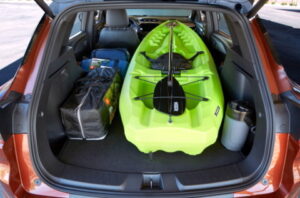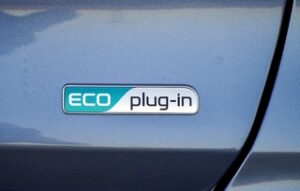Saving Money on Your Way to Maximum MPG
This article may contain affiliate links.
Whether you are seeking to develop more eco-conscious driving habits or reduce gas expenditure, there are many benefits to reducing the miles you put on your vehicle.
From low-mileage car insurance discounts to reduced wear and tear on your vehicle, low-mileage driving can improve your financial standing. But how can you increase your fuel economy? Here are some ways to reduce your mileage and gas usage.
No. 1 – Lighten the Load in Your Car

Surprisingly, the number of items you carry in your vehicle can have a meaningful impact on your fuel economy. It’s simple math when you think about it: The heavier your vehicle is, the more power it needs to move. While the added weight may not seem like much, over days, weeks, months and years of travel, it can have a cumulative effect.
Though you may want some emergency supplies in your vehicle such as a carjack or tire iron, you shouldn’t carry more things in your car than you absolutely need. Try to avoid using your car as a storage container, and don’t let clutter build up.
Try to clean out your car once a week, and make it a habit to take everything out of your car that you bring in. In addition, make sure that the emergency items you have in your car are limited to those things you really need. Consider springing for lighter and more compact emergency gear to further reduce your vehicle’s weight.
Reducing weight will also improve your tires’ lifespan. Too many heavy items in your car can also lead to your car having an unbalanced spread of weight, which can affect its overall driving and tire wear and tear.
No. 2 – Keep Up with Regular Car Maintenance
While it does cost a bit to have your car checked over by a mechanic, regular maintenance will improve your fuel economy and help you catch problems before they occur. Some parts of your car that especially affect your mileage include air filters, connectors and spark plugs. Visit a mechanic regularly to tune up your car, rotate tires and switch out oil.
One aspect of maintenance that many people forget is tire maintenance. You should regularly check your tire pressure as underinflation can increase your fuel consumption by up to three percent. It also wears down your tire treads, making your vehicle move less efficiently over roads.
No. 3 – Turn Off the Engine When Not in Motion
Many people idle their cars for multiple reasons, such as when they are just waiting for a friend to come out of their house or feel they won’t be parked for long. However, idling is a huge waste of fuel and money. It unnecessarily burns fuel your car should only use in order to move. Shut down your car entirely when you need to stop.
Some people argue that starting the engine is less fuel efficient, but this is completely untrue. Idling uses much more fuel than starting the engine does, and also gives off more pollution than your car does when it is moving.
No. 4 – Keep a Steady Speed and Don’t Brake Rapidly
While there is a specific speed (often around 50 mph) that tends to be the most fuel-efficient for your specific vehicle, in the end, it matters less how fast you drive than it does how steadily you drive. Starting and stopping or adjusting your speed up and down causes you to burn more fuel than maintaining a steady pace.
To keep a steady speed while driving, use cruise control while on long stretches and make use of a “fast pass” to get through toll roads. Avoid urban driving on long trips, and try to avoid high-traffic times of day like rush hour.
No. 5 – Give Your Car Some Low-Mileage Modifications
There are a few different ways you can get the most mileage out of your vehicle, whether you have a regular gas-powered car, an electric car, or a hybrid.
There are also several modifications you can make to your vehicle that will improve its performance and lower its fuel consumption. For example, truck drivers can add pickup bed caps. These help reduce wind drag that can be caused by an open truck bed.
As your vehicle ages, grounding cables and wires can begin to wear out. This will gradually impact your vehicle’s whole energy usage, from lights and air conditioning to throttle response and engine startup. Upgrading your cables can cause your whole car to drive and operate more smoothly.
If your car was made after 1996, it likely has an onboard diagnostic system. You could get a real-time engine monitoring device that plugs into this system to provide you with various vehicle data, including a real-time fuel economy readout.
This will let you be able to better gauge how your car is handling and how specific driving conditions or habits are affecting your mileage.
Another low-cost modification is a vacuum gauge, which also can give you quick fuel economy data. Higher manifold vacuum measurements equal higher mileage.
No. 6 – Choose a Fuel-Efficient Vehicle

There are many ways to reduce your mileage, regardless of the car you drive, but if you really want to embrace an eco-friendly lifestyle, consider getting a fuel-efficient car. There are several factors to consider when choosing a new vehicle, and that includes the sustainability and financial savings a new car will bring you.
First, you want to see how much a fuel-efficient car will reduce your costs. For example, modern diesel engines have great fuel economy and will save you money on fuel costs. As excess weight also increases your fuel expenditure, lighter cars will also save you money.
Cars with automatic transmissions, hybrid or electric powertrains, and those equipped with low rolling resistance tires all have better fuel economy than conventional vehicles.
A savvy consumer should also look into vehicles with turbocharged engines and other energy-boosting features.
Fuel-efficient vehicles are becoming more common and green optimizations are becoming more standard. As cars become more efficient, however, it can make consumers think they no longer need to be as eco-conscious as before.
Adjusting your driving habits is good regardless of the efficiency of your vehicle, as it will be sure to save you money and fuel.

5 thoughts on “Tips: 6 Ways to Increase Your Fuel Economy”